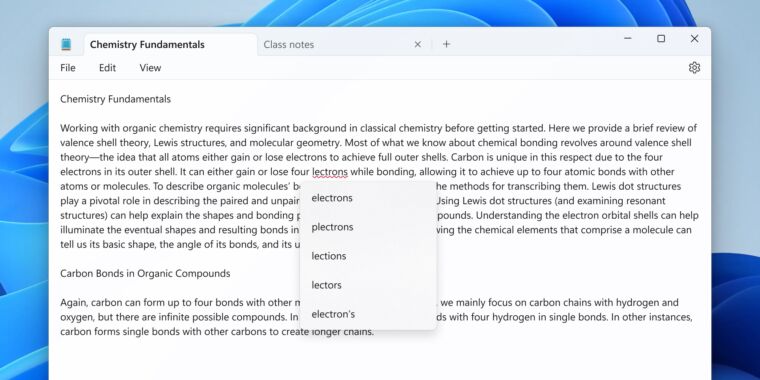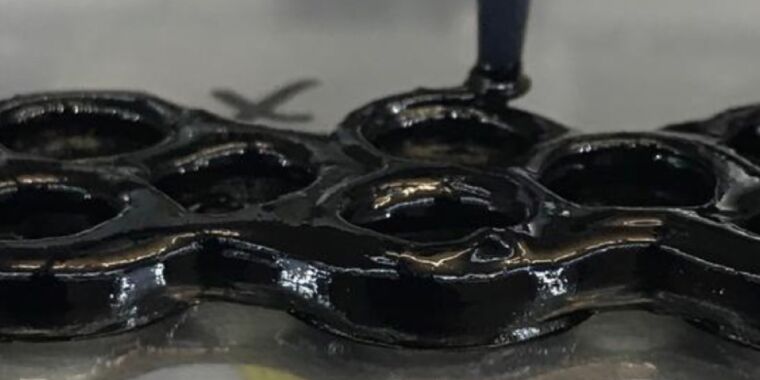
The maker of eye drops linked to a deadly outbreak of extensively drug-resistant infections in the US had a slew of manufacturing violations—from brown slime on filling equipment to a lack of basic measures and systems to ensure sterility—according to an inspection report released by the Food and Drug Administration (PDF).
In February, the regulator warned consumers to immediately stop using eye drops and eye ointment made by Global Pharma, whose products were sold in the US under brand names EzriCare and Delsam Pharma and were available through Amazon, Walmart, eBay, and other retailers. Global Pharma later issued voluntary recalls of the products.
Health investigators had linked the drops to cases of an extensively drug-resistant Pseudomonas aeruginosa strain that had never been seen before in the US. The strain is identified as VIM-GES-CRPA, which stands for a carbapenem-resistant P. aeruginosa (CRPA) with Verona integron-mediated metallo-β-lactamase (VIM) and Guiana extended-spectrum-β-lactamase (GES). Although affected people reported using multiple brands of eye drops, EzriCare was the most common. Additionally, testing by the Centers for Disease Control and Prevention and independent researchers have identified the outbreak strain in opened bottles of EzriCare artificial tears.
As of March 14, 68 people in 16 states have been infected with the strain, the Centers for Disease Control and Prevention reports. Three people have died from the infection, eight have lost vision, and four have had their eyeballs surgically removed.
Back in February, the FDA noted that Global Pharma had several manufacturing violations, but the inspection report lays out the extent of the deficiencies. The 14-page report came from a 10-day inspection of Global Pharma’s manufacturing facility in Thiruporur, India, (just south of Chennai in the state of Tamil Nadu) that took place between February 20 and March 3.
The inspection report outlines eleven “observations” of failures, with specifics. The first is that Global Pharma didn’t seem to bother verifying whether its eye drops, which the company claimed were sterile, were actually sterile. There is “not adequate validation data to demonstrate” that the company’s filtration system can “reliably sterilize” the eye drops, the FDA inspection report said.
Deadly deficiencies
The facility, it seemed, was primed to produce contaminated products. FDA inspectors noted that Global Pharma didn’t verify that components of the solutions, bought from suppliers, were sterile to begin with. And the areas of the facility where the solution was supposed to be made aseptically—contamination-free—weren’t fit for producing sterile products. That is, the walls, ceilings, and floors were not smooth, hard surfaces that could be readily sterilized as they should be. Instead, there were cracks, protruding nails, and holes in the wall. But, even if the area was cleanable, the company’s protocols for cleaning were also deficient, the report noted.
FDA inspectors noted problems with cleaning and maintenance of machinery, which could have led to cross-contamination from other products manufactured in the facility. On the second inspection day, an inspector also noted a “black, brown colored greasy deposit” on parts of the filling machine, and the facility’s equipment logbook noted that it hadn’t been cleaned in nearly a month. A few days later, a manager told the inspector that there was “no procedure for cleaning” the filling machine.
Environmental monitoring for contamination in the facility was also lacking, the report found. And the sterility of primary packaging—including bottle caps—was not verified before they were used. Once the eye drops were bottled, the formula did not contain a preservative to prevent microbial contamination, and batches were released to the US without going through the quality control unit.
A CDC official told Ars previously that she feared the outbreak of VIM-GES-CRPA in the US will seed more infection and drug resistance. “To date, extensively drug-resistant Pseudomonas with genes that rapidly spread resistance, like VIM and GES, have been rare in this country,” Marissa Grossman, a CDC epidemic intelligence service officer, said. “The widespread introduction of the outbreak strain… threatens to undermine efforts to prevent these highly resistant organisms from becoming more common,” she said.
In March, the FDA posted recall notices for two other types of eye drops—from Pharmedica and Apotex—for non-sterility concerns. The products, both listed as manufactured in North America, have not been linked to the VIM-GES-CRPA outbreak.








